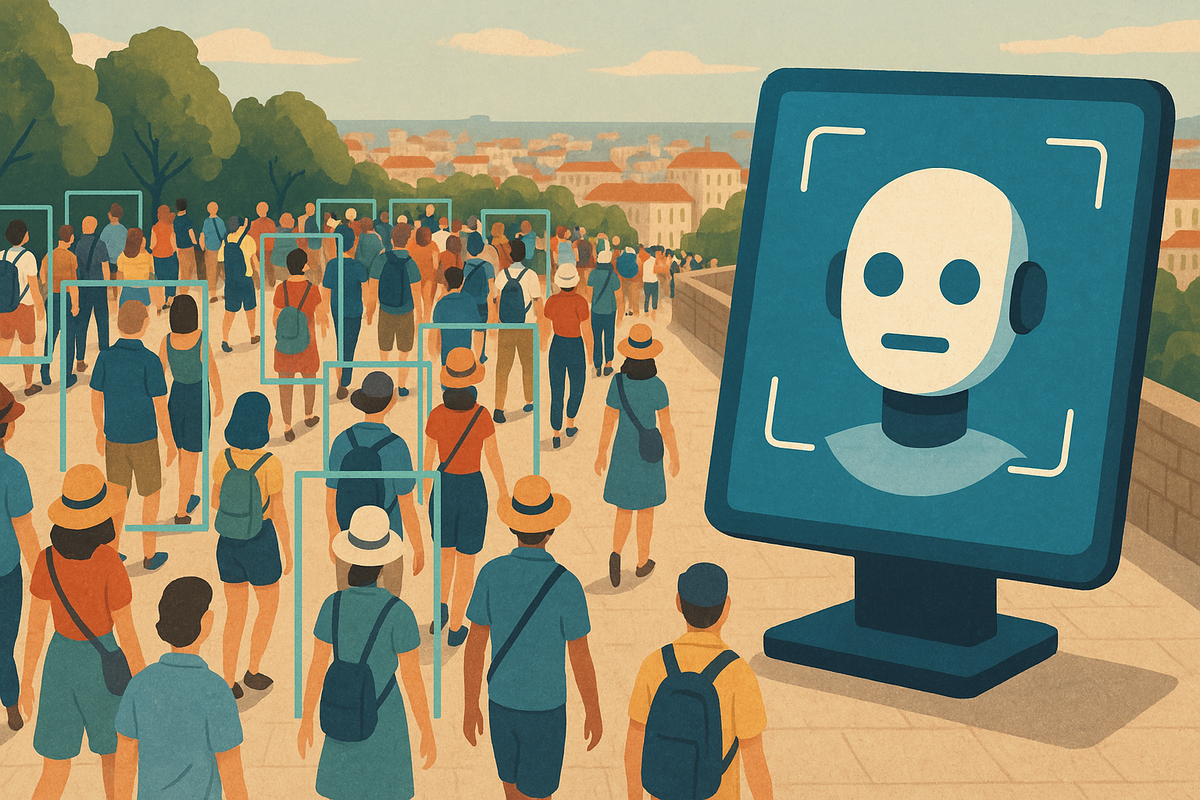Viewpoint: On AI-powered crowd management systems in tourism
Crowd management is an essential aspect of sustainable tourism as it helps to mitigate the negative impacts of tourism on local communities and the environment. When we factor in AI-powered crowd management systems, mitigation success can be enhanced manifold.

In our age of burgeoning humanity—having crossed the remarkable threshold of 8 billion souls, even if the growth rate is apparently slowing down—I find myself increasingly fascinated by how we navigate the physical spaces we share. My recent travels awakened me to the profound challenges of mass tourism, not as mere personal inconvenience, but as a complex societal puzzle demanding innovative solutions.
The phenomenon of global tourism represents one of humanity's great paradoxes: our collective desire to witness the world's wonders simultaneously threatens the very experiences we seek. Picture those magnificent plazas, breathtaking coastlines, and ancient monuments—now often transformed into seas of bobbing heads and selfie sticks. As a scholar of human systems, I'm struck by how our infrastructure frequently buckles under the weight of our collective enthusiasm.
The environmental implications alone are staggering! Fragile ecosystems trampled underfoot, waste accumulation in pristine locations, and the subtle erosion of natural habitats—all sacrificed on the altar of our wanderlust. And yet, who among us hasn't felt the frustration of endless queues diminishing the magic of places we've traveled thousands of miles to experience?
This is where artificial intelligence emerges as perhaps our most promising ally. I've become increasingly convinced that AI-powered crowd management systems represent not merely technological innovation but a profound reimagining of how humanity can coexist in shared spaces—a symphony of data and human movement orchestrated for collective benefit.
Consider the elegant dance of data collection these systems enable: harvesting insights about visitor patterns, analyzing crowd density through sophisticated algorithms, and predicting potential bottlenecks before they materialize. These aren't cold calculations but rather a new language for understanding how we move through and interact with our most treasured spaces.
What excites me most are the predictive analytics possibilities—the system that anticipates a surge at a beloved beach on a perfect summer weekend and mobilizes resources accordingly. Or imagine the virtual queue that liberates you from physical waiting lines, transforming dead time into opportunities for discovery elsewhere. These aren't mere conveniences—they represent the democratization of experience itself.
The integration of these systems with broader infrastructure strikes me as particularly revolutionary. An AI system that speaks simultaneously to transportation networks, accommodation providers, and attraction managers creates not isolated improvements but an ecosystem of experience optimization. The tourist becomes not a passive consumer but an active participant in a dynamically balanced system.
Real-time communication represents perhaps the most profound human connection within these technological frameworks. The ability to instantly alert travelers to overcrowding, suggest alternatives, and facilitate meaningful choices transforms the tourist from a passive victim of circumstances to an empowered agent. This dialogue between system and traveler exemplifies how technology can enhance rather than diminish our human experience.
The collaborative aspect particularly stirs my intellectual curiosity—the notion that various attractions within a city might share real-time visitor data to create balanced distribution throughout urban landscapes. This isn't merely efficient; it's a philosophical reimagining of competitive spaces as collaborative ecosystems working toward shared sustainability.
As I reflect on the inevitable growth of global tourism in coming decades, I'm struck by how these technologies don't merely manage our impact—they potentially transform it. At their most profound level, AI crowd management systems offer us the opportunity to be better stewards of our most precious places, to experience them with greater depth and meaning, and to ensure they remain intact for generations yet unborn.
The poetry of this possibility isn't lost on me: that algorithms and data streams might preserve the transcendent moment of standing before a masterpiece in contemplative silence or experiencing a natural wonder without the distraction of overcrowding. Perhaps this represents technology at its most deeply human—not separating us from authentic experience, but rather creating the conditions where such experiences might flourish.
In this ongoing dance between humanity's wanderlust and our planet's carrying capacity, AI offers not merely a technological solution but a philosophical one—a way of reimagining our relationship with place, with time, and ultimately with each other as fellow travelers on this remarkable planet we call home.
(To be continued, in further detail...)
🔴 Viewpoint is a random series of spontaneous considerations about subjects that linger in my mind just long enough for me me to write them down. They express my own often inconsistent thoughts, ideas, assumptions and speculations. Nothing else. Quote me at your own peril.





